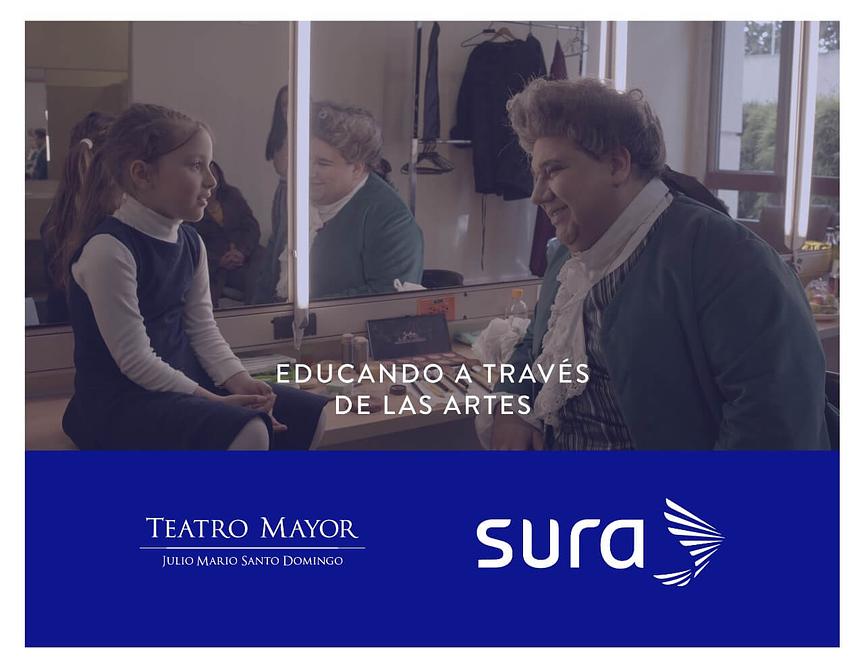WHAT WE DO?
Provide children with opportunities to engage with and in the performing arts (music, theatre, dance, opera).
Through this engagement we aim to develop:
1. an appreciation of the performing arts
2. a sense of identification, pride and belonging associated with one own’s culture and curiosity and appreciation of other cultural and artistic manifestations
3. 21st century skills (in particular the 4 Cs : creativity, critical thinking, communication and collaboration and socioemotional learning).
Our program uses an edutainment model which aims to first entertain by developing attractive story plots and characters and promote learning and behavior change through techniques that have been tested and refined in the edutainment field.
Each episode consists of around 15 minutes of audiovisual material that combines documentary live actions, select footage from live performances at the Teatro Mayor, and animations. The format includes following children ages 6 to 11 as they go “behind the scenes” of a selected production and spontaneously explore how they are crafted through conversations with artists, performers and creative staff. In other episodes, we follow children as they engage with other children and artists across regions, social groups and cultures promoting intercultural encounters, collaboration and a broader social cultural awareness. The learning experience is deepened in classrooms through a pedagogical guide that contains dynamic activities to further explore and develop skills and knowledge associated with the curriculum.
The episodes are distributed through Direct TV’s distance education program called Escuela Plus and other partners reaching over 1.6 million children in 7 countries in Latin America. This program has a particular focus on rural schools and communities.
WHY WE DO IT?
The Teatropedia working group is made up of artists, teachers, and researchers whose practice is immersed in the cultural and experiential development of the arts. Our model allows for establishing connections between the life of theater, its community of artists, and the broader community. Our model allows us to explore the life stories of each of these individual artists and children providing the viewers with a personal and intimate view of creativity that can inspire present and future generations to explore the multiple benefits of arts and culture for both individual and community flourishing. Precisely, these notions allow the team to understand the importance of what art offers to positively impact children and their personal development and on the other hand its connections to social change. On the other hand, we focus on bringing art to spaces such as rural schools and informal learning environments where access to diverse cultural activities is often lacking. In addition. the lack of artistic materials in rural contexts combined with an increased focus on academics and standards has led to the marginalization of the arts and culture in schooling.
We believe that arts are a fundamental approach to understanding life, cultures, and the holistic development of human beings. Our approach states that arts should be a fundamental platform to enhance creative, artistic, and intellectual abilities. Additionally, it is important to think about how the arts address emotional skills such as self-awareness, social awareness and emotional management.

